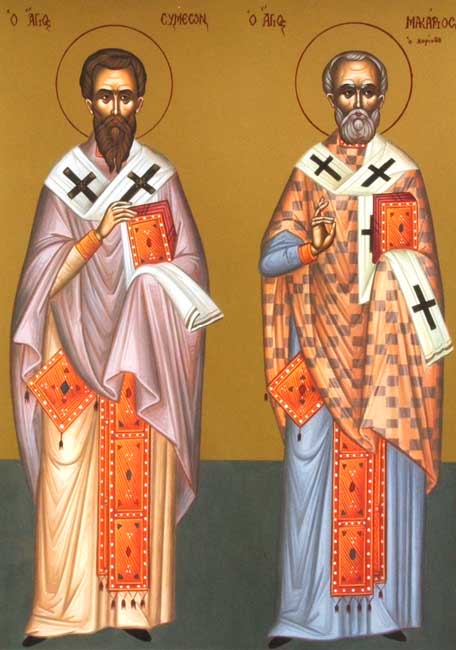 He was born in Corinth in 1731 AD. He was inclined towards liturgical services and acts of piety since his youth. His father used to charge him with collecting rents from the peasants, which he would distribute to the poor and despise the vanities of this world.
He was born in Corinth in 1731 AD. He was inclined towards liturgical services and acts of piety since his youth. His father used to charge him with collecting rents from the peasants, which he would distribute to the poor and despise the vanities of this world.
He fled to become a monk in a nearby monastery. The monks there did not accept him because they feared his relatives, who were powerful. He returned home and devoted himself to studying spiritual books. At the age of twenty-eight, he ran the school of Corinth out of compassion for the young men who were drowning in ignorance. Within six years he won the appreciation and admiration of the whole city. In 1764 he was unanimously elected to succeed the Bishop of Corinth, who had grown old and ill and had been forced to neglect the affairs of the diocese for years.
Macarius was concerned with organizing the affairs of the priests. He took the church laws into consideration and was strict in observing them. He did not accept to ordain anyone to the priesthood unless he was adequately prepared for the service, after obliging him to reside in one of the monasteries and subject him to education. He himself taught them how to perform the divine services and the holy mysteries. In addition, he was concerned with establishing schools and educating the people as much as the circumstances of his time permitted.
Following the Russo-Turkish War of 1768-1774 and the Turkish suppression of the population, Macarius and his family were forced to flee to Zakynthos and then to Hydra. Then, under pressure from the Sublime Porte, the Patriarch of Constantinople was forced to appoint new bishops to the dioceses of the Peloponnese and oblige Macarius to submit his resignation, although he had not violated the sacred laws in any way.
As a bishop without a diocese, he moved to Mount Athos to live in tranquility and peace, but he found the holy mountain in turmoil, so he left it for Chios and then Patmos.
After his father's death, he left his share of the inheritance to his brothers and left the debtors their debts, and returned to Chios to live in fasting, quietism and vigil. After taking the great schema, he ceased to exercise his priestly duties. Everyone considered him the spiritual father of Chios and the neighboring islands. He had a clear influence on the daily lives of the people.
Macarius strove to restore frequent communion among the faithful, after they had previously received the Holy Communion only once or twice a year.
The man of God was struck with paralysis. He lay in a bed of pain for eight months. He always complained that he had not begun to repent. He fell asleep in the Lord in April 1805. The miracles that were performed by his relics have been revealed. His holiness and the rightness of the veneration of the people of Chios for him.
Saint Macarius contributed to the publication of the Philokalia. He also published, in collaboration with Saint Nicodemus the Athonite, the Euphragatinos, a selection of ascetic texts, patristic sayings, and the lives of the saints arranged according to themes.
In addition, Macarius published several spiritual and educational books, including The Christian Catechism of Plato, Metropolitan of Moscow.
He published a book entitled Frequent Communion.
He also recorded the news of the new martyr saints, which were collected in what was known as the “New Limonarion,” which was issued in 1819 by his disciple and biographer, Baros, and completed by Saint Nicodemus the Athonite in his new Synaxarium.
The Church celebrates his feast on April 17.
Troparia for the bar in the fourth tune
Your deeds of truth have shown you to your flock, a rule of faith, an image of meekness, and a teacher of restraint, O Father Archpriest Macarius. Therefore, through humility you have attained exaltation and through poverty you have attained wealth. So intercede with Christ God to save our souls.


